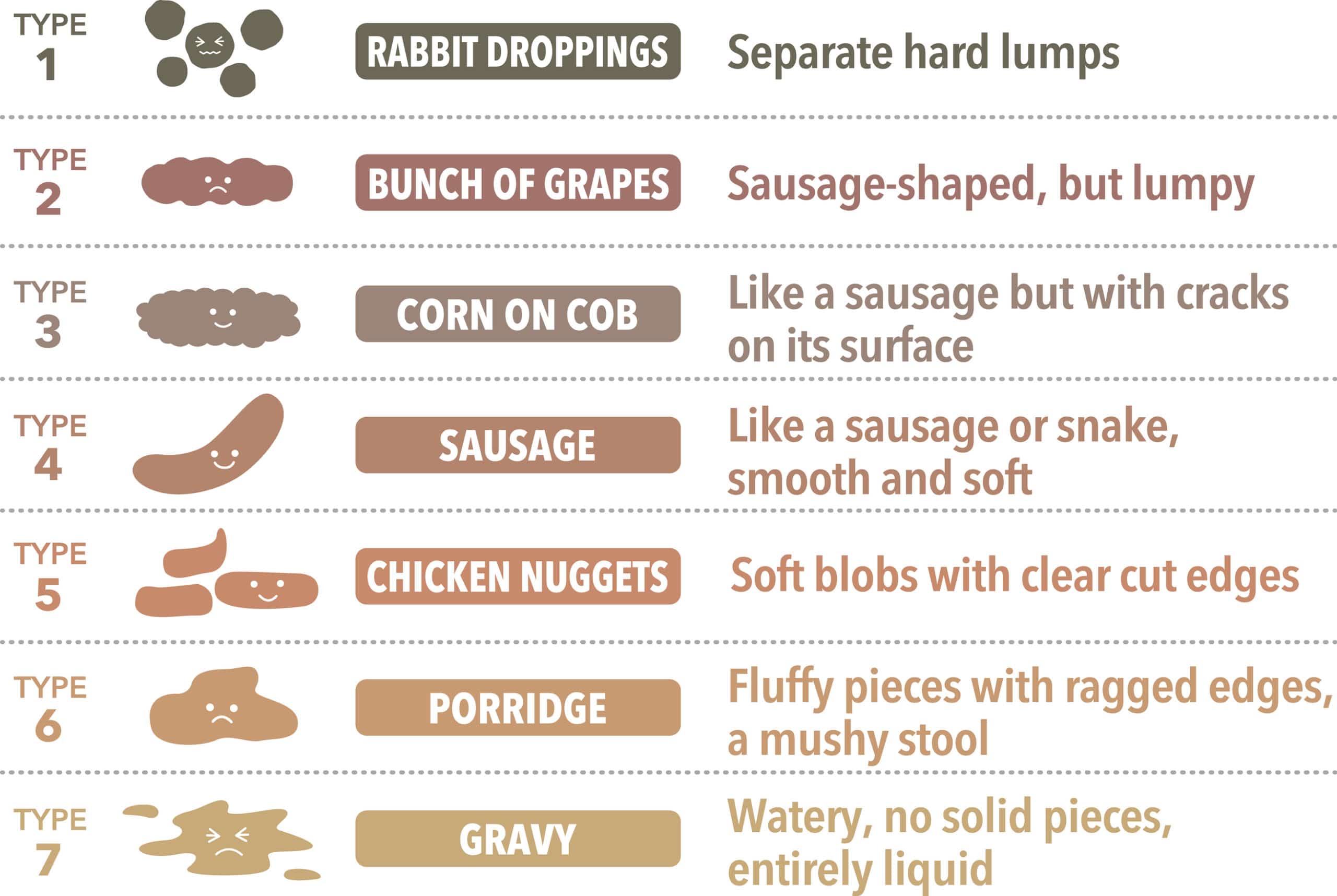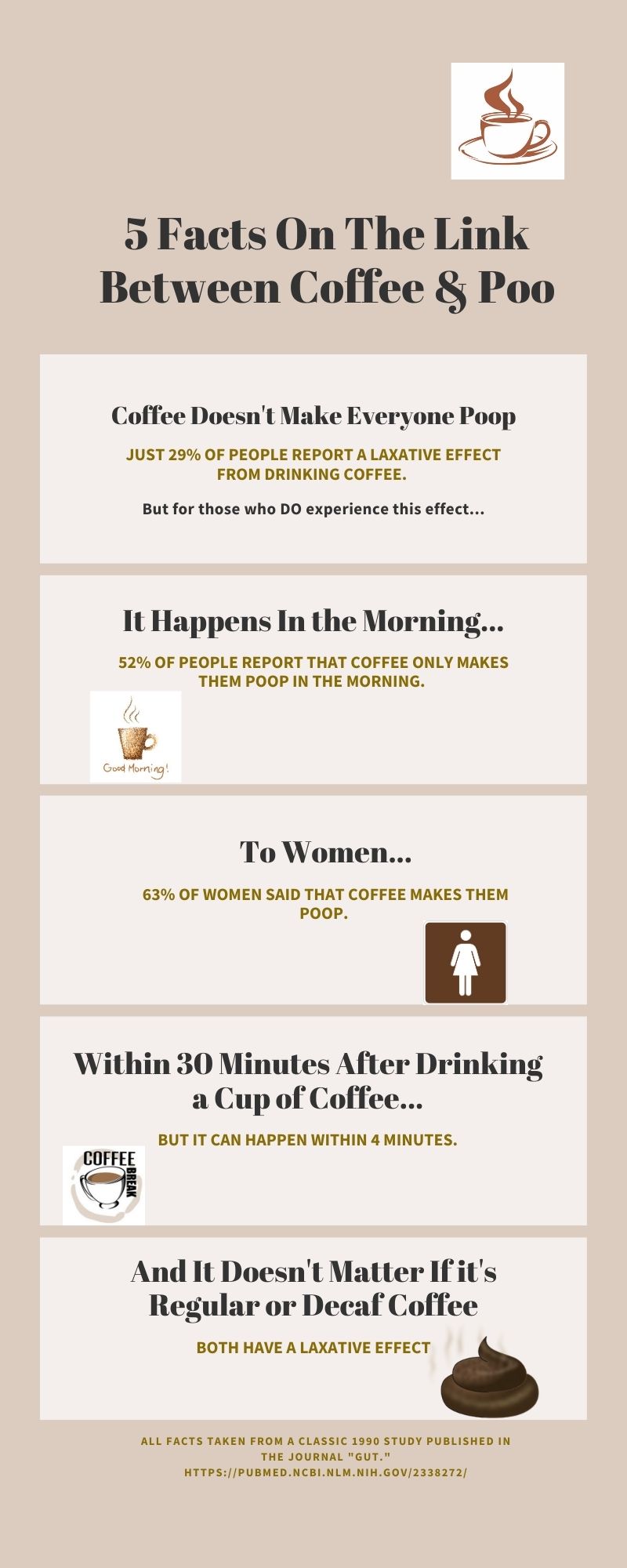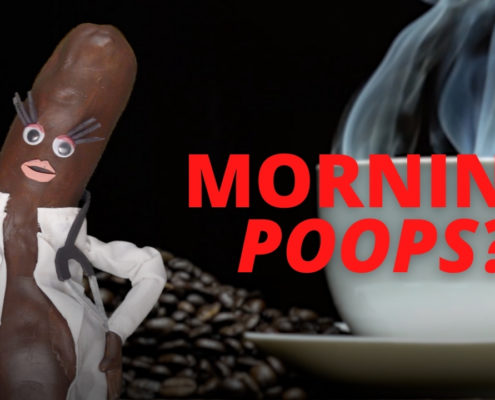Why Does Coffee Make You Poop?
Click Here For Transcript of "Does Coffee Make You Poop?" Video
Does coffee make you poop?
I get this question all the time. Poo Dr to the rescpoo.
I mean rescue.
Wow, I think I might need another cup of Joe.
Anyway, yes, coffee is a colon stimulant, and that’s part of the reason your body wants to poo when it’s present.
It has something to do with the caffeine, but not entirely, and it affects several parts of your digestive tract to get you primed and pooping.
For most people, it is because when you wake up, your colon does, too, and that’s probably when you’re drinking the most coffee.
Whatever the reason, it’s good to book a beautiful bowel movement with your body on the daily and the best way to do that may be a little-known incredible nutrient that is your ticket to poo paradise.
It may sound like I’m overselling it, but I just get so excited about the perfect poop that I can’t help myself.
Do yourself a favor and click below for the perfect poop.
Until next time, like for good poop, share for perfect poop!
Morning routines are sacred, and for many, they include a steaming cup of coffee. But beyond the wake-up call of caffeine, coffee often has another, less spoken-about effect: it sends people straight to the bathroom. Why does this beloved morning beverage boost not just alertness but also bowel movements?
Many people are not surprised that coffee and bowel movements often go together. After all, coffee’s role as a morning ritual that triggers another morning ritual—pooping—is undisputed. Still, coffee’s impact on digestive processes catches many by surprise. This discussion isn’t just about exposing a hidden side of coffee—it’s about understanding our bodies better.
The phenomenon involves a fascinating interplay of digestive activity that can be intriguing to anyone who’s ever wondered, “Why does this happen every time I drink coffee?”
If you’re curious about how coffee, particularly caffeinated coffee, interacts with your digestive system, or if you’ve ever found yourself planning your morning with this in mind, you’re not alone. Stay tuned as this article explores what’s behind this well-known but little-discussed effect of coffee.
If you find these insights as interesting as your morning brew, why not share them? Pass this along in your social media feeds or directly via email, and get the conversation brewing among friends and family!
Decaffeinated Coffee: Does It Also Prompt a Trip to the Bathroom?
While regular coffee is notorious for its quick dash to the bathroom effect, decaf coffee drinkers often wonder if their beverage choice has similar digestive consequences. Decaf coffee, which contains significantly less caffeine than its fully caffeinated counterpart, still holds a modest amount. Because caffeine is a known stimulant for the digestive system, it raises the question: can decaf also trigger the need to poop?
Interestingly, decaf coffee does retain some of the compounds found in regular coffee, such as chlorogenic acids, which can increase stomach acidity and the overall motility of the gastrointestinal tract. Although the lower levels of caffeine in decaf might reduce the strength of these effects, they could still be enough to exert a mild stimulating effect on the bowel.
Additionally, drinking a warm liquid in the morning might help some individuals maintain regularity due to the warmth promoting intestinal movement.
So, while decaf coffee is less likely to act as a strong laxative compared to regular coffee, it can still encourage a visit to the restroom for some people. This effect is more subtle and may not be as pronounced, making decaf a viable option for those sensitive to caffeine but still enjoying the comfort of a warm coffee-like beverage in their routine.
If you’re curious about the gentler impact of decaf or looking to switch from regular to decaf, it might be worth considering how your body specifically responds to this milder version.
Why Coffee Sends You to the Bathroom
Many have noticed that coffee makes you poop. They’ve experienced the quick dash to the bathroom shortly after enjoying a morning cup of coffee. This common phenomenon isn’t just a coincidence but a result of coffee’s impact on the body’s digestive processes.
Here are several reasons why coffee might be hastening your trips to the restroom:
1. Stimulation of Gastric Acid
Coffee prompts the stomach to produce more gastric acid, which helps break down food. The increase in acidity can speed up digestion, causing the stomach contents to move more quickly into the intestines.
This rapid digestion can lead to the bowels activating sooner than they might otherwise, prompting an earlier bathroom visit.
2. The Gastrocolic Reflex
Coffee stimulates the gastrocolic reflex, which is your body’s way of making room for what’s consumed. When this reflex is activated, the colon is prompted to empty, which makes you need to poop.
The effect is more pronounced with coffee due to its high caffeine content and ability to stimulate this reflex powerfully.
3. Increased Motility in the Colon
Caffeine, a natural stimulant found in coffee, increases motility in the colon, meaning it causes the muscles in the large intestine to contract more often.
These contractions push contents toward the rectum, which is the final section of the digestive tract, culminating in the urge to defecate.
4. The Presence of Chlorogenic Acids
Coffee contains chlorogenic acids, which can increase stomach acid levels and the overall motility of the gastrointestinal tract.
These acids not only help with digestion but also encourage the intestines to process and push waste out more rapidly.
5. Magnesium Content
Some types of coffee contain significant amounts of magnesium, which can have a laxative effect. Magnesium helps relax the intestines’ muscles, which can improve bowel movement efficiency.
This mineral also attracts water, which softens the stool and makes it easier to pass.
6. Psychological Factors
For some, the act of drinking coffee has become psychologically associated with going to the bathroom.
This conditioning can trigger the body to initiate bowel movements as a routine part of morning rituals.
Understanding these triggers can help you manage your morning routine better and decide when and how much coffee to drink.
Whether you’re trying to ensure you’re uninterrupted at that morning meeting or planning a leisurely start to your day, knowing how coffee affects your digestion can give you an extra edge in planning your schedule.
FAQ: Key Insights on Lower Colon Health
Maintaining lower colon health is vital for effective digestion and overall well-being.
These frequently asked questions address common concerns and provide insights into keeping this crucial part of the digestive system functioning correctly.
1. What is the primary function of the lower colon?
The lower colon, which includes the descending and sigmoid colon, is primarily responsible for absorbing water and salts from digested food. This absorption helps solidify waste into stools.
The lower colon also stores stool before it is expelled from the body, making its function critical for regular and comfortable bowel movements.
2. What are common symptoms of lower colon issues?
Symptoms that may indicate a problem with the lower colon include changes in bowel habits such as increased constipation or diarrhea, abdominal pain, and blood in the stool. Persistent bloating and an inability to fully evacuate the bowels are also common signs of lower colon distress.
These symptoms can suggest conditions ranging from minor dietary intolerances to more severe issues like inflammatory bowel diseases.
3. How does diet affect the health of the lower colon?
Diet plays a significant role in the health of the lower colon. A high-fiber diet aids in the smooth movement of waste through the colon, preventing constipation and maintaining a healthy gut environment.
Conversely, a diet low in fiber and high in processed foods can lead to hard stools and strained bowel movements, which can stress the lower colon and lead to problems like hemorrhoids and diverticulitis.
4. Can lifestyle choices impact lower colon health?
Yes, lifestyle choices have a direct impact on lower colon health. Regular physical activity helps stimulate peristalsis, the natural contractions of the colon muscles that move stool along. Adequate hydration is crucial, as it helps soften the stool, making it easier to pass.
Avoiding excessive alcohol and not smoking are also beneficial, as these habits can negatively affect digestive health.
5. When should one seek medical advice for lower colon health issues?
Medical advice should be sought if persistent changes in bowel habits, unexplained weight loss, severe or persistent abdominal pain, or blood in the stool are present. These symptoms could indicate underlying conditions that require professional assessment and treatment.
Early diagnosis and treatment of lower colon issues can prevent complications and improve long-term health outcomes.
Understanding and addressing these aspects of lower colon health can significantly improve one’s quality of life and prevent more severe health issues down the road. If you experience any troubling symptoms, consulting with a healthcare provider is always a wise decision.
Conclusion: The Energetic Effects of Coffee on Digestion
Exploring why coffee sends us so promptly to the bathroom reveals just how interconnected our dietary habits are with our body’s natural processes. Coffee, a beloved morning ritual, not only perks up the mind but also activates the digestive system in ways we might not expect.
If this insight into coffee’s brisk effects has caught your interest, why not share the enlightenment? Pass this article along through social media or send it directly via email. It’s a fun and relevant read that might change how your friends and family think about their next cup.
Take Viscera-3!
Running to the bathroom for number two isn’t fun, but it’s good for your health. Clearing your bowels every morning supports not only digestive health but overall health!
In this respect, it doesn’t matter if you have a bowel movement because of coffee or because your bowel movements are regular.
Speaking of healthy bowel movements, you can help fix so many of your digestive and bathroom issues, such as gas and bloating, and improve your overall health with this patented molecule that is backed by Ivy League Doctors by clicking here!
Types of poop one encounters is categorized by the Bristol Stool Chart. This chart is a generalized indicator of how or why different types of poops look and feel a certain way. The 7 types of poop are broken up into categories based on a 2,000-person study!

Does your poo look this good? If you have Bristol Type 3 or 4 – your poop is considered “normal”! Bristol Type 1 or 2, is where the poop is hard and difficult to pass, are indicative of constipation. Often, these types of stool can be painful to pass – but don’t worry – Doctor Poo has a recommended healthy-gut switch solution…just keep reading!
Should you ever worry about your poop?
Always consult your healthcare provider if you have any concerns about what your poop means. People are asked to call their healthcare providers if: They experience severe levels of abdominal pain or discomfort with diarrhea that does not go away when you poop or fart. Also, if diarrhea is accompanied by a fever of 101 degrees Fahrenheit or higher, chills, vomiting, or fainting, call your physician immediately.
What is unhealthy poop?
An unhealthy poop is when one poops too often (hence, your doctor asking you if you poop more than three times daily) or not poops often enough (As such, less than three times a week) and also excessive straining when pooping. Poop that is colored red, black, green, yellow, or white. greasy or fatty stools are unhealthy.
Help fix so many of your digestive and bathroom issues, such as gas and bloating, and improve your overall health with this patented molecule that is backed by Ivy League doctors by clicking here!
Doctor Poo Provides More Valuable Answers for Those Hard-to-Ask Questions Below:














Trackbacks & Pingbacks
[…] Some researchers also believe that caffeine increases bowel movement, due to which you need to go to the bathroom more often than a person with low caffeine dependency. […]
Comments are closed.